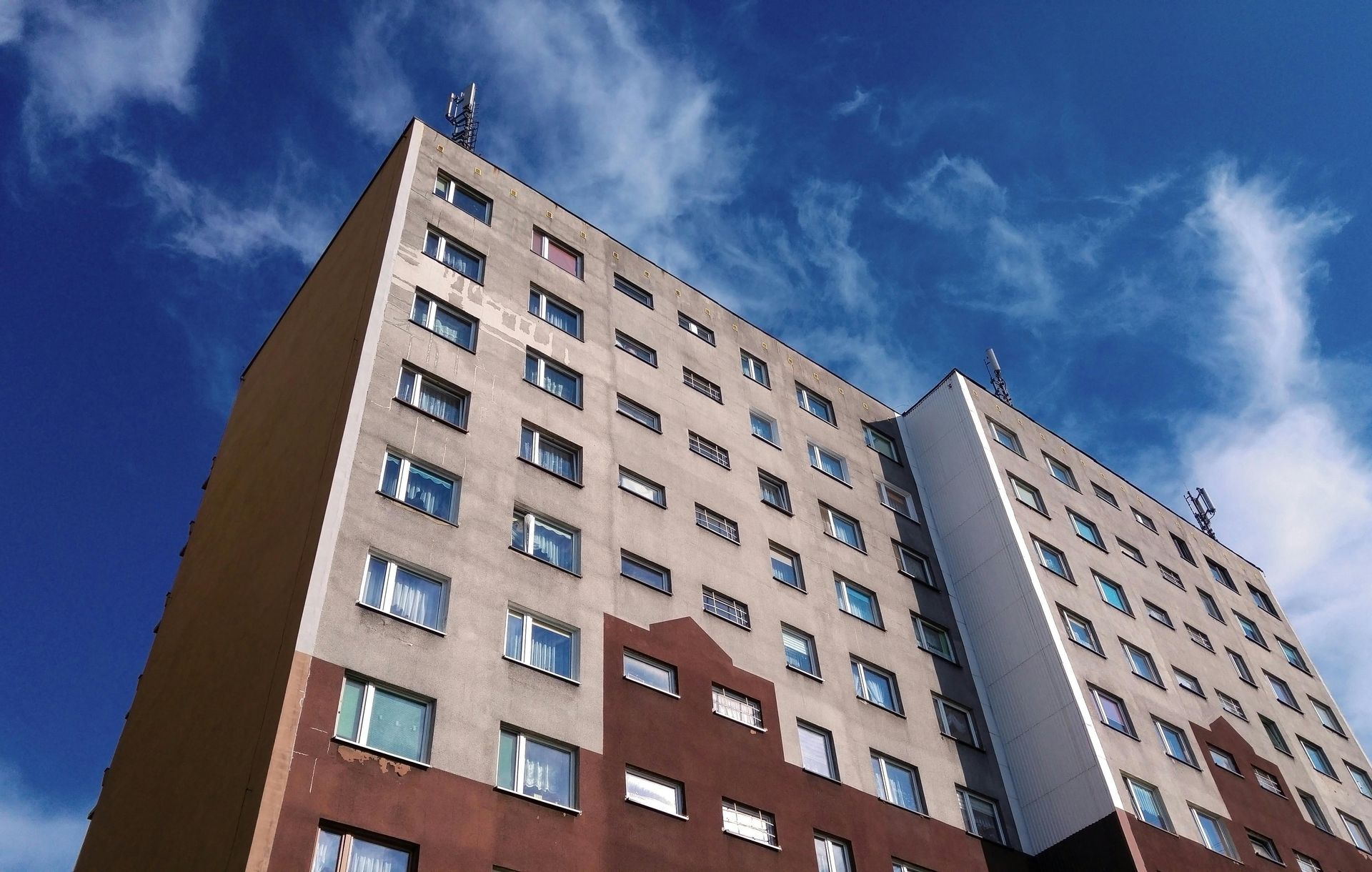5 Common Property Management Challenges in San Diego
Effective Solutions to over coming San Diego Real Estate Challenges

Managing properties in San Diego comes with unique challenges that can impact your success as a landlord. By effectively optimizing tenant screening and retention strategies, you can enhance tenant satisfaction and reduce turnover.
Understanding these common hurdles is essential for maintaining profitable investments and ensuring smooth operations.
Communication is key in property management, whether it’s keeping tenants informed or marketing your properties effectively. You’ll find that addressing financial and legal aspects early on will not only protect your investment but also foster better relationships with tenants, leading to increased satisfaction. Identifying and solving these recurring issues will set you up for long-term success.
As you delve into the common challenges faced by property managers in San Diego, you’ll discover practical solutions that can simplify your processes. This guide will empower you with the knowledge needed to manage your properties effectively while keeping tenants happy.
Key Takeaways
- Streamlined tenant screening can improve retention and satisfaction.
- Understanding financial and legal obligations protects your investment.
- Effective communication enhances marketing and tenant relationships.
Optimizing Tenant Screening and Retention Strategies
To effectively manage your property in San Diego, focusing on tenant screening and retention is essential. A solid screening process minimizes vacancies and reduces tenant turnover.
Strong relationships with tenants encourage them to stay longer.
Enhancing Tenant Screening Processes
Implementing a thorough tenant screening process is vital.
Start by conducting background checks that include credit history, rental history, and criminal background. This helps you identify responsible tenants likely to pay rent on time.
Create a clear application form that includes specific questions about income and employment. Verify this information to ensure a stable financial situation.
Also, consider using technology for screening. Online applications allow you to reach a wider audience and process applications efficiently. Utilize software that can streamline background checks and access tenant databases quickly.
Maximizing Tenant Retention
Maximizing retention is as crucial as screening. Happy tenants are likely to renew their leases, reducing turnover. To achieve this, prioritize excellent communication. Respond promptly to maintenance requests and concerns.
Consider offering service perks, like regular property maintenance and community events. These efforts foster a sense of community, which can strengthen tenant relationships.
Incentives for lease renewals, such as a small rent discount or upgrades to their unit, can motivate tenants to stay. Keep in mind that retention strategies not only build loyalty but also save you money over time by minimizing vacancies.
Navigating Financial and Legal Aspects of Property Management
Managing properties involves understanding both financial and legal responsibilities. You need to be aware of eviction processes, fair housing laws, and effective rent collection strategies. These aspects are crucial to ensuring the smooth operation of your property management.
Understanding Eviction and Fair Housing Laws
In San Diego, navigating eviction laws requires careful attention.
You must follow state laws regarding notice periods and legal grounds for eviction. Typically, landlords must provide a written notice to the tenant before starting the eviction process.
Additionally, familiarize yourself with fair housing laws. These laws protect tenants from discrimination based on race, color, national origin, religion, sex, familial status, or disability.
Violating these laws can result in serious consequences. Always treat all applicants and tenants fairly to avoid legal issues.
Keeping accurate records of communications and procedures can also help protect you in case of disputes.
Strategic Rent Collection and Increases
Establishing a clear rent collection process is vital for your rental income. Use multiple payment options, like online payments or direct deposits, to make it easier for tenants to pay on time.
Sending reminders before the rent due date can help reduce late payments.
When it comes to rental increases, check local regulations regarding rent control. San Diego has specific rules about how much you can increase rent each year. Typically, state laws require a formal notice about any rent increase, which must be given 30 to 60 days in advance.
By planning your rent adjustments strategically, you can maximize your rental income while staying compliant with the law. Keep your tenants informed about any changes to maintain a positive relationship.
Effective Communication and Marketing Techniques
Effective communication and targeted marketing are essential for property management success. They help you maintain strong relationships with tenants while keeping your properties visible in a competitive market.
Building Strong Tenant Communication Channels
You should prioritize open lines of communication with your tenants. This helps in addressing their concerns and building trust. Use multiple channels such as email, texting, and phone calls to reach tenants effectively.
Regular updates regarding maintenance, lease changes, or community news keep tenants informed and engaged. You can create a standard schedule for updates to ensure consistency.
When tenants express complaints, listen actively and respond promptly. This shows you value their input. Consider implementing a tenant portal where they can submit requests easily and track their progress.
Regular feedback can help you adjust your management practices and enhance the tenant experience.
Enhancing Property Exposure through Targeted Marketing
To attract potential tenants, you need a strong marketing strategy. Use online listings on popular real estate platforms to reach a broader audience. High-quality photos and detailed descriptions can make your properties stand out.
Consider using social media for targeted advertising. Platforms like Facebook and Instagram allow you to create ads that reach specific demographics. This can help you find tenants who are looking for properties like yours.
Hosting open houses or virtual tours can also engage potential tenants. These events give them a chance to experience the property firsthand.
Incorporate feedback from past tenants to improve your marketing approaches. Understanding what worked well before can guide your future efforts.
Maintaining and Improving Property Conditions
Maintaining property conditions is vital for preserving value and ensuring tenant satisfaction. By focusing on regular maintenance and efficient management through technology, you can effectively minimize issues and repair costs.
Implementing Regular Maintenance and Emergency Service
Regular maintenance is key to preventing costly issues.
Schedule regular inspections to identify problems early. This proactive approach helps you address potential maintenance issues before they escalate into significant property damage.
You should also establish a reliable emergency service plan. In San Diego, rapid responses to urgent repairs can significantly improve tenant satisfaction and retention. Make sure your tenants know how to report issues quickly. Having clear communication can prevent minor problems from turning into major repair costs.
Create a checklist for various maintenance tasks. This could include:
- Weekly property inspections
- Monthly HVAC servicing
- Seasonal landscaping care
By organizing your approach, you can save time and ensure that every area of the property is well taken care of.
Utilizing Property Management Software for Efficiency
Property management software can streamline your processes and improve your efficiency. These tools help you keep track of maintenance schedules, work orders, and communication with your tenants.
With effective software, you can automate reminders for regular maintenance tasks. This ensures nothing falls through the cracks, reducing the chances of unexpected maintenance issues. You can also manage repair costs more easily, allowing for better budgeting.
Additionally, many property management systems allow tenants to submit maintenance requests online. This simplifies the reporting process and helps you manage service requests in a timely manner.
Consider key features when selecting software, such as:
- Maintenance tracking
- Cost management tools
- Tenant communication platforms
Investing in property management software can lead to smoother operations and better property maintenance outcomes.
Frequently Asked Questions
In property management, addressing specific challenges can enhance the overall effectiveness of your operations. Here are some common inquiries that property managers often have regarding their responsibilities and best practices.
How can property managers effectively deal with maintenance issues in multiple units?
You should establish a reliable system for handling maintenance requests. This includes using property management software to track issues and prioritize them based on urgency.
Regular inspections can also help prevent minor problems from becoming major repairs, keeping tenants satisfied and properties in good condition.
What strategies help mitigate legal compliance risks in San Diego's rental market?
To mitigate legal risks, stay informed about local laws and regulations. Regularly review lease agreements to ensure compliance with any changes in legislation.
Consider attending workshops or joining property management associations for updated training on legal issues that may affect your business.
In what ways can property managers improve tenant retention and manage turnovers?
Maintain open communication with tenants to address their needs promptly. Offering incentives, such as lease renewals or upgrades, can encourage them to stay longer.
Creating a positive community atmosphere in your properties will also enhance tenant satisfaction, reducing turnover rates.
What are best practices for handling rent collection and financial discrepancies?
Implement an online payment system to simplify rent collection and keep accurate records. Set clear policies regarding late fees and payment deadlines.
In case of discrepancies, approach the situation with transparency and accuracy. Regularly audit your financial records to catch errors early.
How should property managers approach handling difficult tenants or disputes?
When facing difficult tenants, approach the situation calmly and professionally. Listen to their concerns and try to reach a compromise that works for both parties.
Document all interactions and agreements to protect yourself legally if disputes escalate.
What systems can be put in place to streamline property management operations efficiently?
Using property management software can greatly improve efficiency. These systems can automate tasks like maintenance requests, rent collection, and communication with tenants.
Organizing regular team meetings will also help keep everyone on the same page, ensuring a cohesive approach to management.
More about Coastline Equity
Property Management Services
 Learn More
Learn MoreOur team will handle all your property needs, offering specialized services such as in-depth inspections, liability management, staff recruitment and training, and round-the-clock maintenance—expert support tailored to the unique requirements of your real estate assets.
About Us
 Learn More
Learn MoreOur dedicated team transforms property management challenges into opportunities. From tenant management to streamlined rent collection and proactive maintenance.
Property Management Excellence
 Learn More
Learn MoreAs a contributing author for Forbes, Anthony A. Luna brings a wealth of expertise and knowledge in the property management industry, real estate sector, and entrepreneurship, providing insights and thought-provoking analysis on a range of topics including property management, industry innovation, and leadership.
Anthony has established himself as a leading voice in the business community. Through his contributions to Forbes, Anthony is set to publish his first book, "Property Management Excellence" in April 2025 with Forbes Books.
Insights
 Learn More
Learn MoreLearn more about Coastline Equity's property management practices & processes and how we support our clients with education and a growth mindset.
Coastline Equity Property Management is your partner as you continue to learn and grow.
News & Updates
Property Management Made Easy
Los Angeles
1411 W. 190th St.,
Suite 225
Los Angeles, CA 90248
Temecula
41743 Enterprise Circle N.,
Suite 207
Temecula, CA 92590
P.O. BOX #1489
TORRANCE, CA 90505






